News Update from Scopus
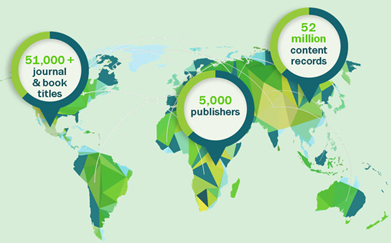
-
Scopus Data for University Ranking Analysis
Times Higher Education (THE), a global leader in university rankings, has announced their decision to work with the Scopus database and SciVal, Elsevier’s research metrics analysis tool, for its World University Ranking and other rankings including THE 100 Under 50, Asia University and BRICS & Emerging Economies rankings. Read more
- A New Journal Metric - Impact per Publication (IPP)
A new journal metric called Impact per Publication (IPP) has been added to allow researchers to better compare and evaluate journals. The IPP measures the ratio of citations in a year (Y) to scholarly papers published in the 3 previous years (Y-1, Y-2, Y-3) divided by the number of scholarly papers published in those same years (Y-1, Y-2, Y-3). Users can access the IPP metric from the “Compare journals” tool and elsewhere in Scopus.
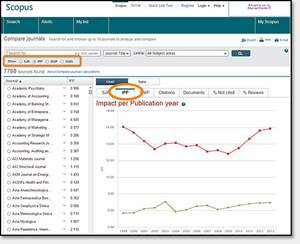 The IPP metric is using a citation window of 3 years which is considered to be the optimal time period to accurately measure citations in most subject fields.
The IPP metric is using a citation window of 3 years which is considered to be the optimal time period to accurately measure citations in most subject fields. The Journal Citation Report (JCR) Impact factor, by contrast, is calculated by dividing the number of citations in the JCR year by the total number of articles published in the 2 previous years.
The IPP is not normalized for the subject field and therefore gives a raw indication of the average number of citation a publication published in the journal will likely receive.
Do You Know Your h-index?
h-index was developed by J.E. Hirsch to qualify the impact and quantity of individual author research output. It can be used to measure the research performance of a single author, multiple authors, or selected documents. ResearcherID, Scopus Author ID and ORCID help you showcase your publications and establish your research network.
- To learn more, watch our online tutorial:
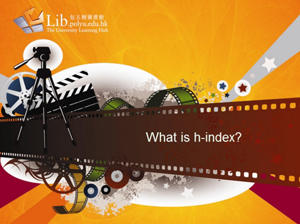 What is h-index?
What is h-index?
(http://www.lib.polyu.edu.hk/tutorial/h-index/h-index.html)
- In PolyU Library, which databases can help display h-index?
Currently, it can be found under Scopus and Web of Science.


-
ORCID (Open Researcher and Contributor ID) provides a persistent digital identifier for individual researchers to better manage its profile and h-index.

-
You may send information of your publication to ORCID via Scopus, see below:
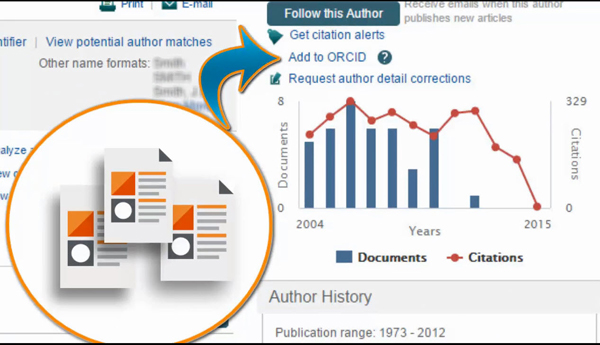
- To learn more, watch our online tutorial:
Managing ORCID iD via Scopus (http://www.lib.polyu.edu.hk/tutorial/h-index-scopus-orcid/h-index-scopus-orcid.html)
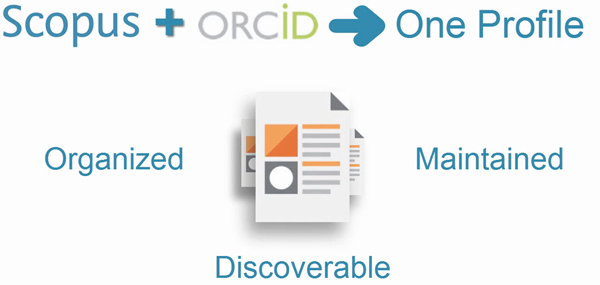



 PolyU Library AI Chatbot
PolyU Library AI Chatbot